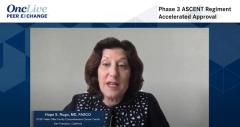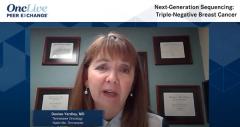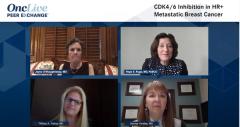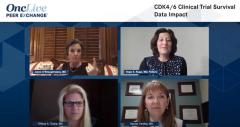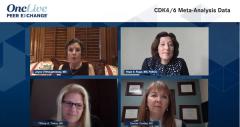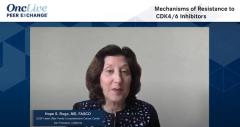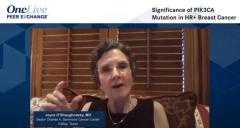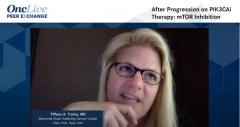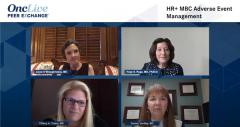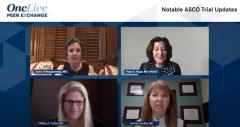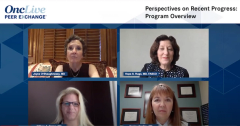
After Progression on PIK3CAi Therapy: MTOR Inhibition
Episodes in this series

Joyce O’Shaughnessy, MD: I want to ask Denise and Tiffany. First, I’ll say that we got the PIK3CA, and that’s 40% of our ER [estrogen receptor]–positive patients. Upstream from PIK3CA, we got AKT. AKT is mutated in only a tiny fraction of ER-positive patients, but it is part of that whole signaling from a whole bunch of receptor tyrosine kinases that can drive resistance to endocrine therapy. It’s been the target of several trials going on with capivasertib and ipatasertib, 2 AK inhibitors.
We saw randomized phase 2 data and the FAKTION trial looking at unselected patients, ER-positive patients with breast cancer who had progressed on an aromatase inhibitor. Prior to the CDK4/6 availability, fulvestrant plus or minus the capivasertib, and we saw very nice improvement in progression-free survival, regardless of PIK3CA-mutation status. That’s in the CAPItello-291 larger phase 3 trial. We’ll have to stay tuned, but it’s a very nice trial for our patients. The AKT inhibition may be coming for certain patients, but we still have everolimus in our practice.
I want to hear from Tiffany and Denise. How are you utilizing everolimus in your practice now. Tiffany, how are you using it?
Tiffany A. Traina, MD: Similar to what you had said earlier, we need to understand what the PI3 kinase status is of our patients with hormone receptor–positive advanced breast cancer. That is something that, through cell-free DNA or tissue sampling, we understand. For my patients who are progressing on a CDK4/6 inhibitor who failed to have a biomarker to predict benefit from alpelisib, I still consider the combination of aromatase inhibitor and everolimus.
It tends to be a bit later in my sequencing, but I’ve found it to be much better tolerated with the help of the SWITCH study and the use of oral topical steroids to help reduce the mucositis. I still find it as a tool in my armamentarium, particularly now in those patients who failed to have the PI3 kinase mutation.
Joyce O’Shaughnessy, MD: Thanks. How about you Denise?
Denise Yardley, MD: I really echo what Tiffany says. I still use it, but not as frequently in the past when that was the only targeted endocrine therapy doublet out there, prior to the CDK4/6 inhibitors. It has moved to a later line, but when I think about where these patients are with their disease struggles and what my choices are to treat if they don’t have a PI3 kinase mutation. I can’t think about adding an agent to an endocrine partner. I look at everolimus and feel very comfortable managing that combination.
Addressing dexamethasone and SWISH and the potential of the stomatitis and mucositis in those patients, at every juncture we look at what that progression looks like in that particular patient and the status of their disease in multiple disease sites. The thought continues to be trying to prolong their treatment on therapy endocrine partner, which has been the main signaling of hormone receptor–positive breast cancers, before I move onto sequential single-agent chemotherapies. That’s definitely integrated in that sense.
I still think the driver for many of the hormone receptor–positive diseases after metastatic disease states, after CDK4/6, is still best addressed by an endocrine therapy backbone partner. But eventually those patients slide into the need for cytotoxic chemotherapy. I tried to delay that as long as possible and use all other tools available.
Transcript edited for clarity.


